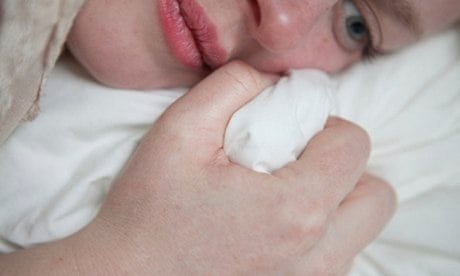A growing number of girls and young women say they are unhappy with the way they look and more 16- to 18-year-olds feel less positive about life generally, a report by the charity Girlguiding has suggested.
Sexual harassment is commonplace, while young women are judged harshly for sexual behaviour that is seen as acceptable in boys and under media pressure to conform to stereotyped versions of beauty, the report says.
In an era of burgeoning social media use, online bullying and abuse is also widespread, though most girls deal with this on their own rather than telling their parents or someone in authority, according to the Girls' Attitude Survey. This involved nearly 1,300 respondents aged seven to 21, including people not involved with guiding, and was conducted mainly online under controlled conditions but included face-to-face interviews with young women not in education, employment or training.
The overall proportion of those surveyed who were not happy with their looks rose to 33% this year, from 29% last year and 26% two years ago. The 63% happy with how they look has fallen from 73% two years ago to 63% now At ages 14 to 16, 51% of girls are unhappy with their appearance, and even after that age, 52% are still unhappy.
High levels of criticism and judgment of celebrities in the media have an impact, with more than seven in 10 of those aged 11 to 21 saying pictures that "shame" celebrities make them anxious about the way they look.
Although most across the surveyed group report being happy most of the time, 24% of the 16- to 18-year-olds say they are not very or at all happy, far more than last year's 14%.
The report says that some girls, influenced by the media and advertising, are spending substantial sums on beauty products. Among 11- to 16-year-olds, nearly eight in 10 say they shave or wax their legs, more than six in 10 wear make-up to school and four in 10 shave or wax their bikini line and/or wear a padded bra.
Nearly two-thirds of 7- to 11-year-olds use nail polish, half wear makeup and one in three wears high heels, although they see this as just "being a girl" rather than trying look older.
Despite the overall bleakness of the findings, 55% of respondents would like to be a leader in their chosen job, 88% say both parents should be able to share time off after their baby is born and 70% want to combine having children and a career.
Members of the 16-strong Girlguiding "advocates" youth panel who helped devise the survey, carried out by the research group ChildWise, said they "were surprised and troubled" by the findings and warned that "the freedoms and protections women have gained are being abandoned".
They added: "We feel strongly that a woman should be judged on her ability, not her appearance, and that sexual harassment should not be still such a common occurence that it is dismissed as just something to deal with."
Ellie Dibben, a 16-year-old advocate, said: "To me, an equal society for men and women would be one where shampoo adverts also include men washing their hair provocatively while frolicking in the shower." Another, Katie Wormald, 18, called for topics such as online bullying and pornography to be dealt with in sex education lessons. "It is ridiculous that in the 21st century there is no mention of the internet in any of the laws or guidelines surrounding sex education," she said.Jo Swinson, the Liberal Democrat under-secretary for women and equalities was particularly worried by the number of girls unhappy with their looks. "This trend is going the wrong way and should give us all cause for concern. That's why the government's Body Confidence Campaign has been working with the media, advertising, retail and fashion industries to encourage diversity and reduce the harmful effects of gender stereotyping and objectification."

Comments (…)
Sign in or create your Guardian account to join the discussion